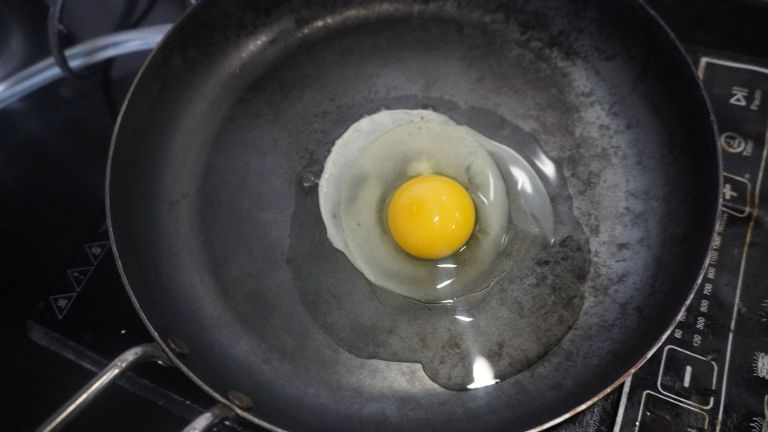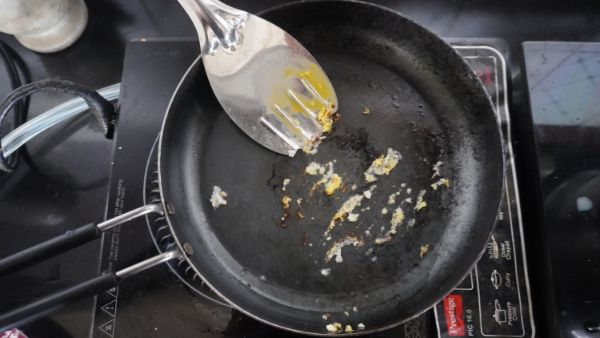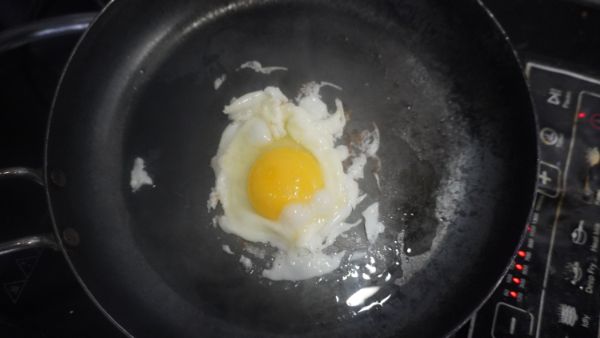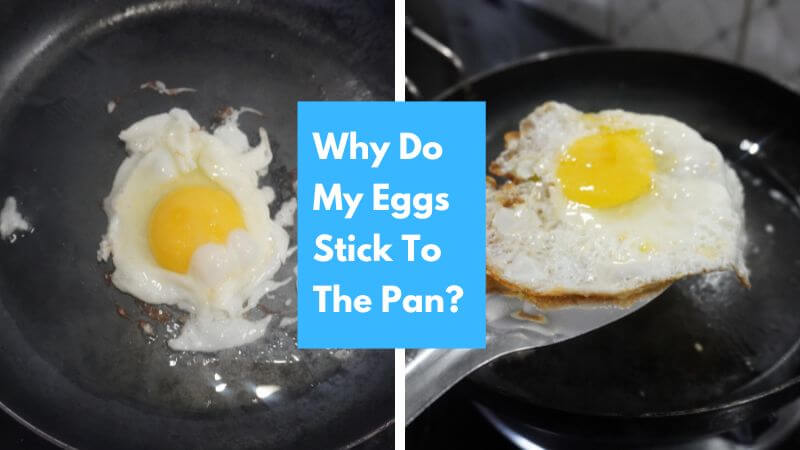Cooking eggs – doesn’t seem too hard, does it? You’ve been doing it your whole life. It’s probably one of the first foods you learned to cook. You do it every day. It’s as easy as ABC, right?
But the real question here is, have you mastered this seemingly simple but actually highly elusive cooking skill? Why do my eggs stick to the pan? Sometimes, simple things in life are the most difficult things to achieve.
In this blog, we will discuss a couple of reasons why eggs stick to the pan all the time and how to prevent it. I know for a fact that this article will be teeming with nuggets of information that will help you make the perfect eggs every single time.
So, let’s begin!
Table Of Content
Why Do My Eggs Stick To The Pan?
The most common reason eggs stick to the pan is that the butter wasn’t heated enough. It could also be due to using the wrong pan or flipping the egg too soon. If you’re using a non-stick pan, but the eggs still stick, the non-stick coating has most likely deteriorated.
Moreover, a lot of people on the internet stated that using cooking spray instead of butter can also cause the eggs to stick. Therefore, it’s recommended to use butter or olive oil.
According to them, the cooking spray will become a gummy mess when heated. So, you might want to take that into account.
Also, if there’s any abrasion on the surface, it will cause the eggs to stick.
Now, before we discuss these reasons in detail, let’s look at the science behind why eggs stick to the pan in the first place. It’s pretty interesting.
The Science Behind Why Eggs Stick To The Pan
I have briefly outlined the causes behind eggs sticking to the pan above, but the real science behind this blunder is far more interesting.
Basically, the eggs stick to the pans due to the presence of protein in the egg whites. When the egg white is heated, it starts to coagulate and produce a sticky film that sticks to the pan.
Let’s look at the details.
The protein comprises nitrogen, hydrogen, carbon, and oxygen atoms. And when these atoms are arranged in a particular way, they produce an adhesive film.
The protein present in egg whites is called ovalbumin. Ovalbumin is made up of two important parts: globulin and albumin. Globulin is the cloudy part of the egg white, whereas ovalbumin is the clear part of the egg.
When you heat the egg whites, the globulin and albumin change shape, which allows the protein to bond with one another and produce a sticky film. This film is created by egg proteins known as proteinaceous film.
The film then sticks to the pan’s surface and prevents the egg from being cooked evenly. So, what can you do?
You can use a non-stick pan coated with a certain material that prevents the proteinaceous film from forming.
Heat The Butter Until It’s Foamy
Have you ever melted some butter in a pan and added the eggs, but instead of producing a big sizzle, the eggs sit in a pool?

This indicates the pan isn’t hot enough to cook the eggs. It definitely was hot enough to melt the butter but not hot enough to cook the eggs. As a result, the butter couldn’t lubricate the pan, and thus the eggs stuck to it.
The butter should be fully melted and foamy before you add the eggs.
Use A Non-Stick Pan

Eggs can act like glue. In fact, eggs are often used as glue to seal empanadas, pie crusts, and other pastries. Therefore, it’s no surprise when eggs stick to the bottom of the pan.
As we discussed above, when the eggs are cooking, the protein forms a chemical bond with the pan’s metal. When you’re using a non-stick pan, the coating on the pan interferes with the bonding.
An 8-inch omelet pan should be big enough to cook two eggs.
Don’t Flip The Egg Too Soon

If the part in contact with the pan isn’t cooked properly, it won’t be solidified enough to peel itself away from the pan. Therefore, you should wait until the side in contact with the pan is adequately cooked and is able to peel itself away from the pan.
Once the egg whites are set, which takes about 4 to 5 minutes, give the pan a quick shimmy and toss it upward to flip the eggs. Otherwise, you can simply use a thin spatula that slides over the egg and flips it over.
Final Words: Why Do My Eggs Stick To The Pan?
The eggs can stick to the pan for a number of reasons, such as using the wrong pan, flipping the egg too soon, or using the wrong kind of pan.
Having said that, the most common reason eggs stick to the pan is not heating the butter for the required time. The butter should be thoroughly heated and turn foamy before you add the eggs.
Keep Reading!
How To Store Cut Bell Peppers? Learn The Right Way!
